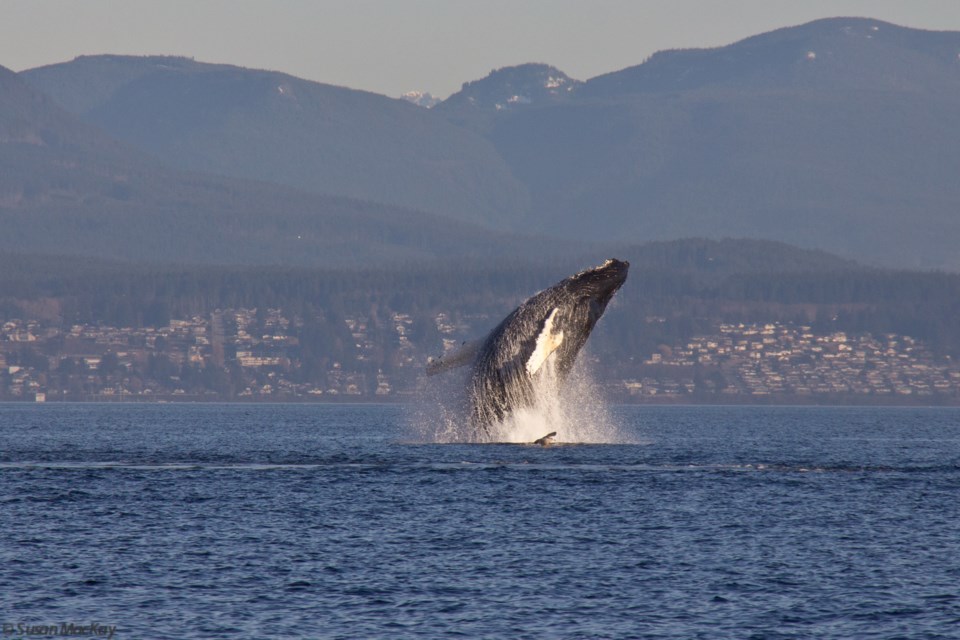This time of year whale and dolphin sightings tend to diminish but humpbacks, resident orcas, transient orcas and other cetaceans are still around the Salish Sea.
The last reported sighting was of northern resident orcas that appeared in the qathet region and upper Georgia Strait on December 5 and December 8 as reported by , a digital publication of Wild Ocean Whale Society (WOWS).
A large pod of Pacific white-sided dolphins and humpback whales was also observed around that time in the Sutil Channel and Johnstone Strait, all reported by members of the public.
Susan MacKay, founder and director of WOWS, started the organization in 2010 to raise public awareness about whales and dolphins in the region. She believes last year's humpback activity in the waters in between qathet and Comox was unprecedented.
"This year we've had more humpbacks than in previous years; it's [numbers of humpbacks] been growing constantly since about 1995," said MacKay. "When we had our first humpback, mom and calf that stayed in our inside waters off Savary Island, that was beautiful."
Live-stream whale camera
For about 10 years a camera set up by WOWS has been pointed toward Comox and the ferry terminal in Westview in order to observe whales in the area. The camera runs on a 24-hour, seven days per week
MacKay jokingly said WOWS has the camera aimed toward Comox because even though the whales are not on a schedule, the ferry is, so at least it gives people something to look at while watching the YouTube stream.
"When we do have whales, we can move the camera to head tilt and zoom," said MacKay. "When we are aware of something directly in front, then we can in fact shift the camera, which we have done a number of times."
Report what you see
The camera is only a small part of WOWS’ work to raise public awareness of whales in the area, all done by volunteers. Its website, , is where WOWS volunteers like Ivan Ng write and report about whale sightings observed by the public.
To report a whale or dolphin sighting or injured marine mammal, go to the website or send an email to [email protected].
"I've been monitoring whales, dolphins, porpoises for many, many years, even before starting [WOWS], and it came down to letting people understand what they're looking at because they were not aware," explained MacKay. "Raising public awareness was our main focus because any of the information that I had gathered previously had gone for research, but it never went to the public."
Public awareness
Now, the website acts as a kind of citizen science initiative that collects real-time data by the public for the public interest and also for the Fisheries and Oceans ÎÚÑ»´«Ã½.
"We don't publish in real time, because it puts far too much pressure on the whales," said MacKay. "It's always going to be historical, but in the meantime, we try and find out who the animal is with, what pod or which family of whales."
To see the live search for it on .
Join the for the top headlines right in your inbox Monday to Friday.

